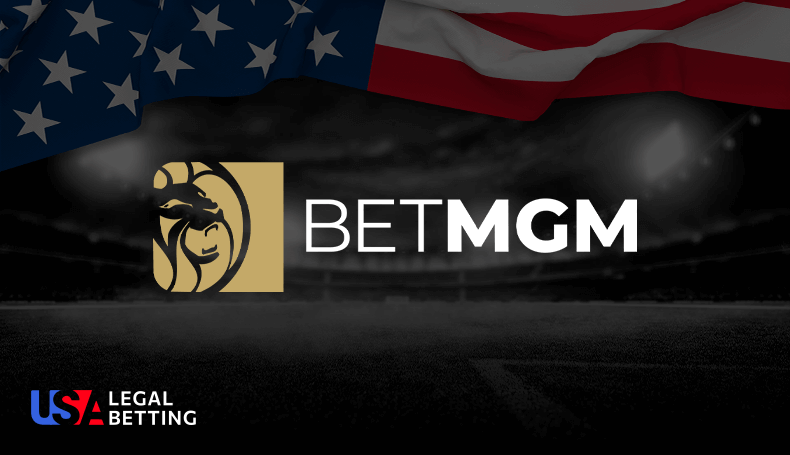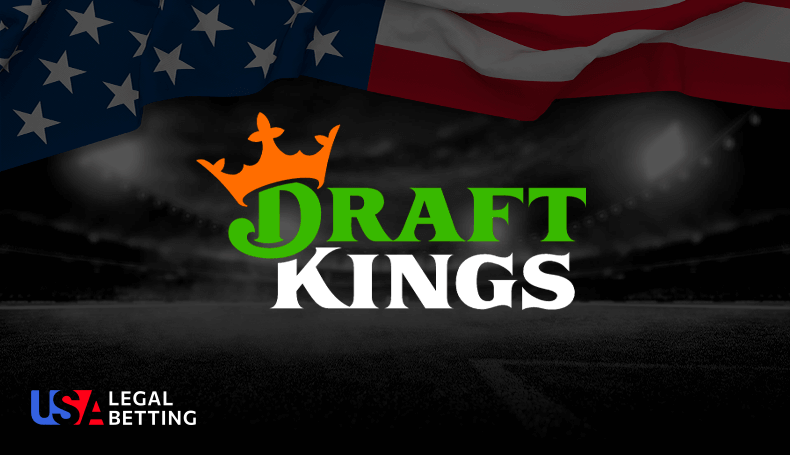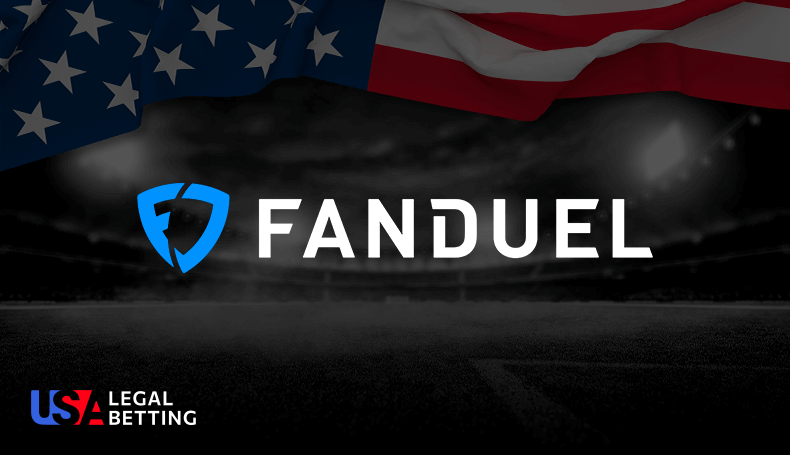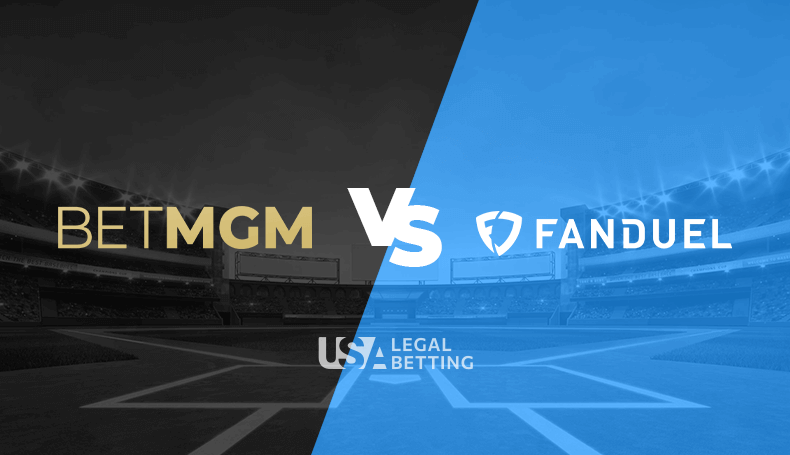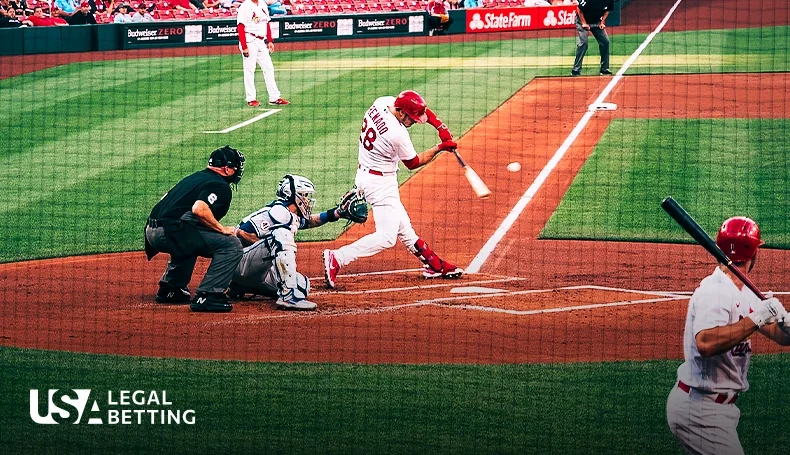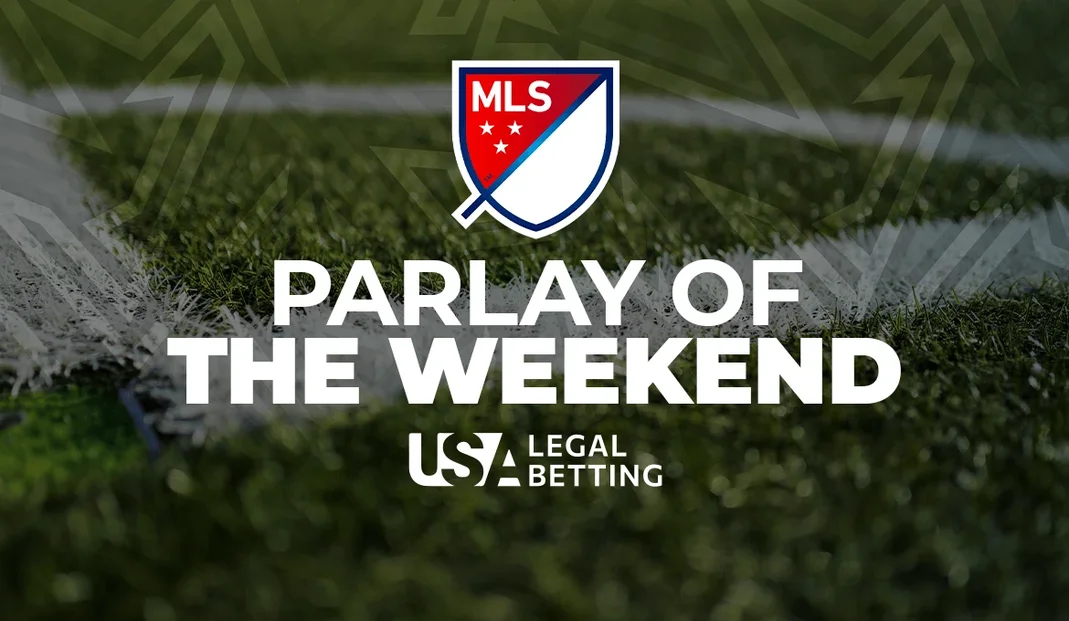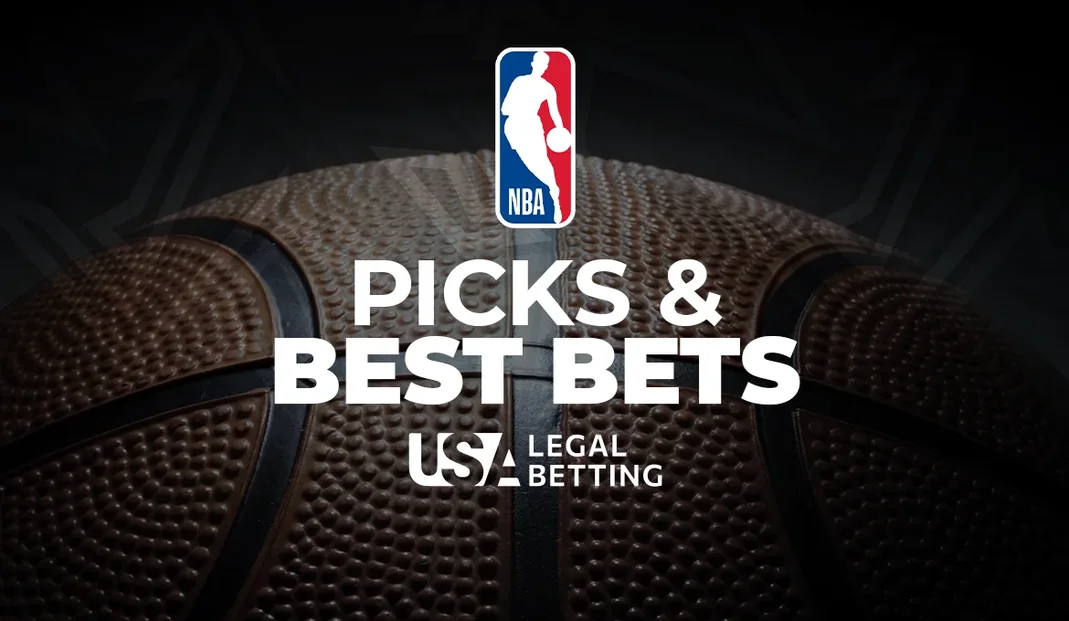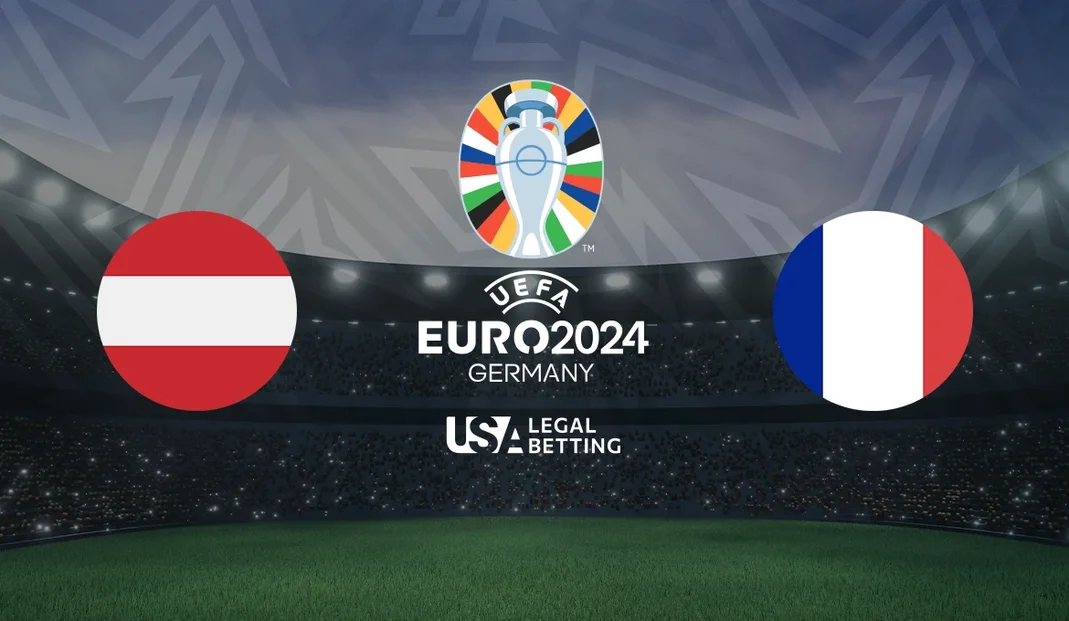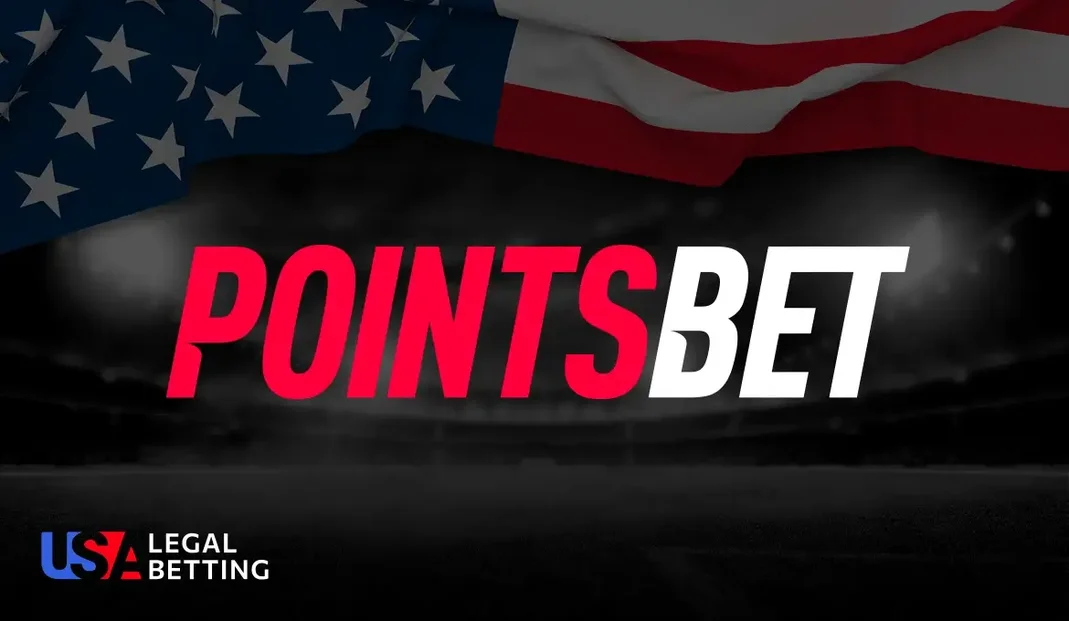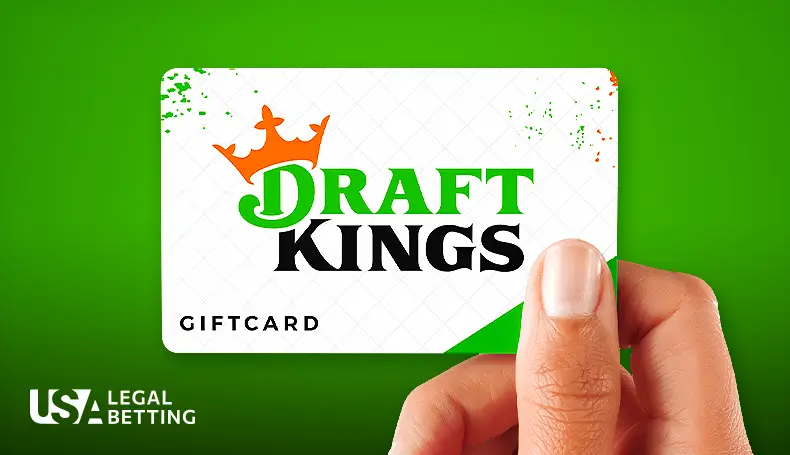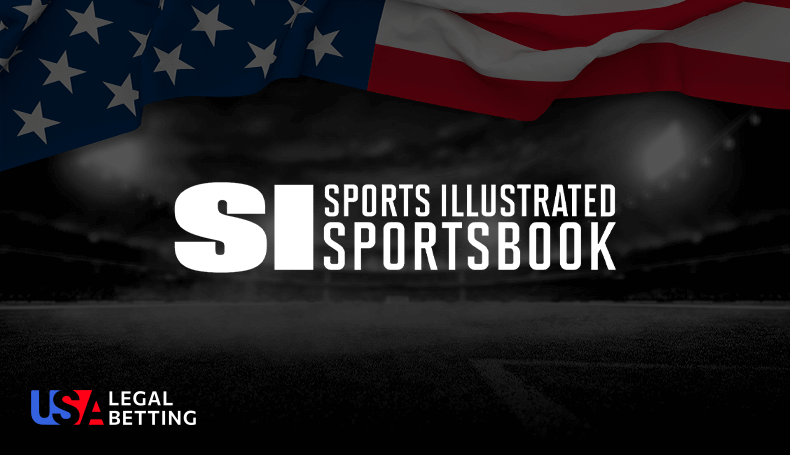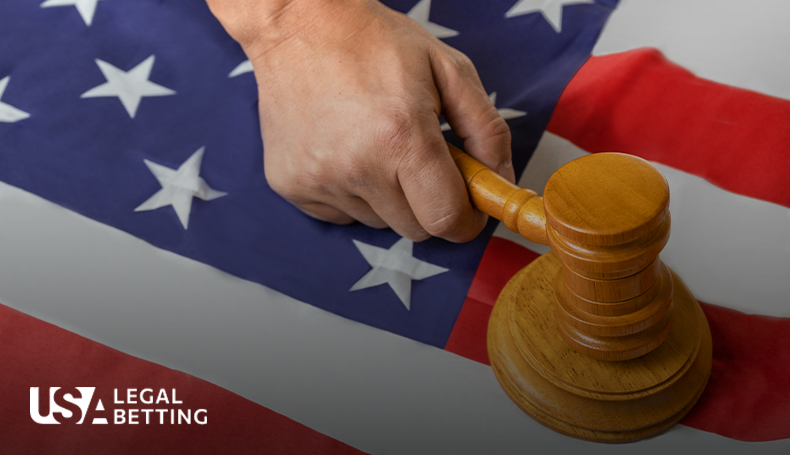When it comes to sports betting, there are 38 states and Washington, D.C., that have made it legal in some capacity. Below, we’ll cover each sports betting state, including what forms of it are legal and how it came to be legal.
Arizona
Legal Status: Mobile and retail
In April 2021, Arizona passed HB 2772, which allowed for retail and online sports betting in the state. The first online sportsbooks came to the state in September 2021. The current legislation allows for 20 online sportsbooks and retail sports betting. Today, there are 17 online sportsbooks available, with six of them launching on September 9, 2021.
To date, the state has a total handle of close to $7.8 billion and has recorded gross revenues of close to $630 million.
- Online Sportsbook Apps: Bally Bet, bet365, BetFred, BetMGM, BetRivers, Betway, Caesars, Desert Diamond Sports, DraftKings, ESPN Bet, FanDuel, Golden Nugget, Hard Rock Bet, SaharaBets, SuperBook, Unibet, WynnBet.
- Retail Sportsbooks: Casino del Sol, Chase Field, Desert Diamond Casino Sahuarita, Desert Diamong Casino Tucson, Desert Diamond Casino West Valley, Footprint Center, Gila River Casino Lone Butte, Gila River Casino Vee Quiva, Gila River Casino Wild Horse Pass, Gila River Santan Mountain Casino, Harrah's Ak-Chin Casino, Mazatzal Casino, Paradise Casino, We-Ko-Pa Casino, State Farm Stadium, TPC Scottsdale, Twin Arrows Navajo Casino.
- Legal Online Casinos: N/A.
- Year Launched: September 2021.
Arkansas
Legal Status: Mobile and retail
Sports betting in Arkansas has been legal since November 2018. When the legislation passed, it focused primarily on retail sports betting. There are three retail sites in Arkansas. The first bet was taken in 2019, alongside the opening of Saracen Casino Resort. In February 2022, the Arkansas Joint Budget Committee finalized rules to expand sports betting, now offering it online for those with a land-based partner. There are currently three online sites to play at, with the first launching in March 2022. A fourth retail casino has yet to be opened but will be called the Legends Resort & Casino.
- Online Sportsbook Apps: Betly, BetSaracen, and Oaklawn Sports.
- Retail Sportsbooks: Southland Casino Racing, Saracen Casino Resort, Oaklawn Racing Casino Resort.
- Legal Online Casinos: N/A.
- Year Launched: September 2019.
Colorado
Legal Status: Mobile and retail
Colorado legalized retail and online sports betting in late 2019. The first sportsbooks launched about six months later, in May 2020. Today, there are 20 places to play online, and the state has brought in gross revenues of more than $713 million. For an online site to launch, it must partner with one of the more than 30 land-based casinos in Colorado.
- Online Sportsbook Apps: Bally Bet, bet365, Betfred, BetMGM, BetMonarch, BetRivers, Betsafe, Betway, Caesars, Circa Sports, ClutchBet, DraftKings, ESPN Bet, Fanatics, FanDuel, Novig, SBK Sportsbook, SI Sportsbook, SuperBook, Tipico
- Retail Sportsbooks: Ameristar Casino Black Hawkore, Wildwood Casino, Billy’s Casino, Colorado Grande, Golden Mardi Gras Casino, Grand Z Casino, Isle of Capri Casino, Johnny Nolon’s, Johnny Z’s Casino, Lady Luck Casino, Monarch Casino Blackhawk, Red Dolly Casino, Saratoga Casino, Sasquatch Casino, The Lodge Casino at Black Hawk, Wild Card Casino, Z Casino, and more!
- Legal Online Casinos: N/A.
- Year Launched: May 2020.
Connecticut
Legal Status: Mobile and retail
Connecticut legalized sports betting on October 19, 2021. Just three online sites, including PlaySugarHouse, partnered with the State Lottery. Before this, Governor Ned Lamont settled on this arrangement with the Mashantucket Pequot and Mohegan tribes in May 2021.
- Online Sportsbook Apps: FanDuel, Fanatics, DraftKings.
- Retail Sportsbooks: Foxwoods and Mohegan Sun.
- Legal Online Casinos: FanDuel, SugarHouse Casino, DraftKings.
- Year Launched: October 2021.
Delaware
Legal Status: Retail
Sports betting is in an exciting spot in Delaware. Currently, players can go to retail outlets. Still, state legislators are under the impression that their current laws permit online sports betting. 888 Holdings had operated as the state's only online operator, but BetRivers took over in December 2023. It was the first state post-PASPA to accept an in-person wager in June 2018.
- Online Sportsbook Apps: BetRivers
- Retail Sportsbooks: Delaware Park Casino, Dover Downs, and Harrington Raceway & Casino.
- Legal Online Casinos: N/A.
- Year Launched: June 5, 2018.
Florida
Legal Status: Online and Retail
After a lengthy legal battle, Florida is once again offering legal sports betting. The state’s gaming compact with the Seminole Tribe has been done for years, but legal challenges in federal court have kept the industry on hold until the fall of 2023. Both retail and online sports betting finally got the green light at the end of the year, launching in December 2023.
- Online Sportsbook Apps: Hard Rock
- Retail Sportsbooks: Seminole Classic Casino, Seminole Hard Rock Hotel & Casino, Seminole Casino in Coconut Creek, Seminole Hard Rock & Casino Tampa and Queen, Seminole Casino in Immokalee, and Seminole Brighton Casino
- Legal Online Casinos: N/A.
- Year Launched: 2023.
Illinois
Legal Status: Mobile and retail
The first sports wager was taken at Rivers Casino on March 8, 2020, after it was legalized in 2019. The first online sportsbook launched a few months later, on June 18, 2020. However, initially, players needed to register in person to wager online. That stipulation was removed on March 5, 2022. You can also bet on in-state college teams as of December 2021, but only at retail sportsbooks.
- Online Sportsbook Apps: BetMGM, BetRivers, Caesars, DraftKings, FanDuel, PointsBet, ESPN BET, and Circa
- Retail Sportsbooks: Rivers Casino, Grand Victoria, DraftKings at Casino Queen, FanDuel Sportsbook and Horse Racing (Fairmount Park), Hawthorne Race Course, and more than 5,000 sports betting kiosks across the state.
- Legal Online Casinos: N/A.
- Year Launched: 2020.
Indiana
Legal Status: Mobile and retail
The 13th state to legalize sports betting, Indiana became legal in September 2019. One month later, on October 3, 2019, it took its first online wager. The law in the state allows for a staggering 40 online sportsbooks.
- Online Sportsbook Apps: Bally Bet, Betr, bet365, BetMGM, BetRivers, Betway, Caesars, DraftKings, ESPN Bet, Fanatics, FanDuel, Unibet, Hard Rock Bet, SBK Sportsbook.
- Retail Sportsbooks: Ameristar Casino Easy Chicago, Belterra Casino Resort, Blue Chip Casino, French Lick Resort Casino, Harrah's Hoosier Park Racing & Casino, Hollywood Casino & Hotel Lawrenceburg, Horeshoe Hammond Casino, Horseshoe Southern Indiana Hotel & Casino, Horseshoe Indianapolis, Rising Star Casino Resort, Bally's Evansville Casino & Hotel, Winner's Circle Clarksville, Winner's Circle Downtown Indianapolis, Winner's Circle New Haven.
- Legal Online Casinos: N/A.
- Year Launched: 2019.
Iowa
Legal Status: Mobile and retail
Iowa became legal on August 15, 2019, and 24 casinos have online partners. The licensing fees in Iowa are cheap compared to the rest of the country, charging $45k in the first year and $10k after that.
- Online Sportsbook Apps: Bally Bet, bet365, Betred, BetMGM, BetRivers, Betway, Caesars, Circa, ClutchBet, DraftKings, DRF, ESPN Bet, FanDuel, Hard Rock Bet, PointsBet, Q Sportsbooks, SuperBook, and Tipico.
- Retail Sportsbooks: Isle Bettendorf and Waterloo, Prairie Meadows, Harrah’s Council Bluffs, Horseshoe Casino, Grand Falls, Rhythm City, Riverside, Q Casino, Catfish Bend, Blackbird Bend, Hard Rock Sioux City, Wild Rose: Clinton, Wild Rose Jefferson, Wild Rose: Emmetsburg, Diamond Jo, Ameristar, Isle Waterloo, and Lakeside Casino.
- Legal Online Casinos: N/A.
- Year Launched: 2019.
Kansas
Legal Status: Mobile and retail
Kansas launched sports betting on September 1, 2022. That day, six online sportsbooks launched, and that’s all there’s been in the state since. The law allows for 12 online sportsbooks. Retail sports betting also began on September 1, 2022.
- Online Sportsbook Apps: ESPN BET, BetMGM, Caesars, DraftKings, FanDuel, PointsBet.
- Retail Sportsbooks: Hollywood Casino at Kansas Speedway, Kansas Crossing Casino, Kansas Star Casino.
- Legal Online Casinos: N/A.
- Year Launched: 2022.
Kentucky
Legal Status: Mobile and retail
Kentucky is one of the newest states to launch sports betting, going live in September 2023. They have both retail and online sports betting available, with a wide variety of options for bettors across the Bluegrass State. The state has issued eight operating licenses and has launched seven online sportsbooks. Kentucky has a large bet catalog and has one of the lowest minium-age requirements at 18.
- Online Sportsbook Apps: bet365, BetMGM, Caesars, DraftKings, Fanatics, FanDuel, ESPN Bet.
- Retail Sportsbooks: Churchill Downs, Derby City Gaming & Hotel, Ellis Park, The Mint Gaming Hall Cumberland, The Mint Gaming Hall Cumberland Run, Newport Racing & Gaming, Oak Grove Racing, Gaming & Hotel, The Red Mile, Turfway Park Racing & Gaming
- Legal Online Casinos: N/A.
- Year Launched: 2023.
Louisiana
Legal Status: Mobile and retail
Sports betting launched in Louisiana in two phases, starting with retail betting. The first retail bets came in October 2021, months after it was legalized in June 2021. Then, at the end of January 2022, online sports betting launched. The law currently allows 41 different legal mobile sports betting apps for online sports betting sites.
- Online Sportsbook Apps: ESPN BET, bet365, BetMGM, BetRivers, Caesars, DraftKings, FanDuel.
- Retail Sportsbooks: Boomtown Casino, Sam’s Town, Coushatta Casino Resort, Harrah’s New Orleans, Golden Nugget, Amelia Belle Casino, Horseshoe Casino, Harrah’s Louisiana Downs, Isle of Capri Casino, Belle of Baton Rouge, Hollywood Casino, Evangeline Downs, Treasure Chest Casino, L’Auberge Casino, Margaritaville Resort Casino.
- Legal Online Casinos: N/A.
- Year Launched: 2021.
Maine
Legal Status: Mobile and Retail
Maine is the latest state to launch legal sports betting. The market is very small, with just two online operators and seven retail locations.
- Online Sportsbook Apps: Caesars and DraftKings
- Retail Sportsbooks: Hollywood Casino Hotel & Raceway, Oxford Casino Hotel, Winners Sports Grill and Off Track Betting, Winners Circle OTB, Favorites OTB, Sanford OTB, Scarborough Downs
- Legal Online Casinos: N/A
- Year Launched: 2023
Maryland
Legal Status: Mobile and retail
Until November 23, 2022, sports betting was only legal at a retail sportsbook in Maryland. Legal sports bets in retail settings became possible in December 2021. Sports betting initially became legal after voters voted in favor of it during the 2020 election. Maryland’s law allows for 60 online and 30 retail sites.
- Online Sportsbook Apps: BetFred, BetMGM, BetPARX, BetRivers, Caesars, Crab Sports Maryland, DraftKings, ESPN Bet, Fanatics, FanDuel, PointsBet, SuperBook.
- Retail Sportsbooks: MGM National Harbor, Greene Turtle, Horseshoe Casino, Live! Casino and Hotel, Laurel Park, Riverboat on the Potomac, Ocean Downs Casino & Racetrack, Hollywood Perryville, Rocky Gap Casino Resort, Rosecroft Raceway, Pimlico Race Course, Fair Hill Fairgrounds, Timonium OTB at Maryland State Fairgrounds.
- Legal Online Casinos: N/A.
- Year Launched: 2021.
Massachusetts
Legal Status: Mobile and retail
After years of back-and-forth, Massachusetts legalized sports betting on August 1, 2022. Retail sports betting launched on January 31, 2023, followed by online sports betting on March 10, 2023.
- Online Sportsbook Apps: BetMGM, Betr, Caesars, DraftKings, ESPN Bet, Fanatics, FanDuel, and WynnBet.
- Retail Sportsbooks: Encore Boston Harbor, MGM Springfield, Plainridge Park Casino.
- Legal Online Casinos: N/A.
- Year Launched: 2023.
Michigan
Legal Status: Mobile and retail
Sports betting became legal in Michigan in December 2019. The first in-person wagers came at MGM Grand Detroit on March 11, 2020. Online sports betting came in January 2021 with DraftKings and BetMGM.
- Online Sportsbook Apps: BetMGM, BetRivers, Caesars, DraftKings, Eagle Casino & Sports, ESPN Bet, FanDuel, FireKeepers, Four Winds, Golden Nugget, Play Gun Lake, PointsBet, SI Sportsbook, WynnBet.
- Retail Sportsbooks: Little River Casino and Resort, MGM Grand Detroit, Bay Mills Resort & Casino, Kings Club Casino, MotorCity Casino Hotel, Ojibwa Casinos (Marquette, Baraga), Northern Waters Casino Resort, Turtle Creek Casino and Hotel, Leelanau Sands Casino, Kewadin Casino (Christmas, Hessel, Manistique, St. Ignace, Convention Center), Greektown Casino, and more.
- Legal Online Casinos: DraftKings, Caesars, BetMGM, FanDuel, PointsBet, BetRivers, WynnBet, Golden Nugget, PokerStars, Hollywood, Play Gun Lake, FireKeepers, Four Winds, SI Casino, Eagle Casino.
- Year Launched: 2020.
Mississippi
Legal Status: Mobile and retail
Mississippi launched legalized sports betting on August 1, 2018, while mobile sports betting is allowed only on the campuses of select retail sportsbooks.
- Online Sportsbook Apps: BetMGM and Pearl River.
- Retail Sportsbooks: 1st Jackpot Casino, Ameristar Casino, Beau Rivage, Bok Homa Casino, Boomtown, Fitz Casino, Gold Strike, Golden Moon Hotel & Casino, Golden Nugget, Hard Rock, Harlow’s, Harrah’s, IP Casino, Horseshoe, Island View, Isle of Capri, and more.
- Legal Online Casinos: N/A.
- Year Launched: 2018.
Montana
Legal Status: Retail
Similar to Mississippi, Montana allows mobile sports betting at specific sites. Montana launched it in March 2020. You can bet at Intralot kiosks throughout various bars and restaurants in the state. The lottery regulates these. Wagers are limited to $250 at a kiosk and $1000 on a website.
- Online Sportsbook Apps: N/A.
- Retail Sportsbooks: Intralot kiosks throughout the state.
- Legal Online Casinos: N/A.
- Year Launched: 2020.
Nevada
Legal Status: Mobile and retail
While Nevada is well known for the glitz and glamor of the Las Vegas Strip, the numerous casinos, and the massive retail sportsbook, they still don’t quite have mobile sports betting down. If you want to bet online, you must visit a retail casino/sportsbook in person to create an account.
- Online Sportsbook Apps: B-Connected, Circa, Caesars, Rampart, South Point, STN, TI Sports, Wastgate SuperBook, William Hill, Wynn Sports.
- Legal Sportsbooks (Retail): Nevada has close to 200 sites to wager on sports at.
- Legal Online Casinos: N/A.
- Year Launched: 2010 (online).
New Hampshire
Legal Status: Mobile and retail
Sports betting went live in The Granite State in December 2019. While mobile and retail sports betting is legal in the state, the state has an agreement with DraftKings as the sole provider in the state through June 2025.
- Online Sportsbook Apps: DraftKings.
- Retail Sportsbooks: The Brook and Filotimo Casino.
- Legal Online Casinos: N/A.
- Year Launched: 2019.
New Jersey
Legal Status: Mobile and retail
If we have any state to thank for legal sports betting nationwide, it’s New Jersey, states where sports betting is legal. Thanks to its court case against the NCAA, the Supreme Court ruled that PASPA was unconstitutional. There are more than 20 online sportsbooks, and the state is accepting online sports betting variants, such as Prophet Exchange. Sports betting in the state launched in June 2018, and online sports betting came in August of that same year. New Jersey was one of the first FanDuel sportsbook states and one of the first BetMGM states.
- Online Sportsbook Apps: bet365, BetMGM, BetPARX, BetRivers, Betway, Brogata, Caesars, DraftKings, ESPN Bet, FanDuel, Golden Nugget, Hard Rock, PointsBet, SuperBook, Tipico, Unibet.
- Retail Sportsbooks: The Meadowlands, Borgata AC, Monmouth Park, Caesars AC, Golden Nugget AC, Freehold Raceway, and more.
- Legal Online Casinos: Borgata, Caesars, FanDuel, Golden Nugget, Party Casino, Tropicana, 888Casino, BetRivers, Stars, BetMGM, DraftKings, Hard Rock, Ocean, bet365, betPARX, WynnBET, Betway, PointsBet, Bally, Harrah’s, Resorts, Mohegan Sun, Pala, Scores, Tipico, and more.
- Year Launched: 2018.
New Mexico
Legal Status: Retail
While no legislation has passed, tribal casinos in the state took it upon themselves to allow it at their casinos. This has been going on since October 2018. It doesn’t seem to be coming soon in terms of complete legalization.
- Online Sportsbook Apps: N/A.
- Retail Sportsbooks: Buffalo Thunder Casino, Inn of the Mountain Gods, Isleta Resort & Casino, Route 66 Casino, Santa Ana Star Casino.
- Legal Online Casinos: N/A.
- Year Launched: 2018.
New York
Legal Status: Mobile and retail
No state had a more highly anticipated online launch for sports betting than The Empire State. New York routinely brings in the most bets in all states where sports betting is legal. Retail sports betting started in July 2019, followed by online sports betting in early January 2022.
- Online Sportsbook Apps: FanDuel, DraftKings, Caesars, BetRivers, BetMGM, PointsBet, WynnBET, Resorts, Bally Bet.
- Retail Sportsbooks: Akwesasne Mohawk, Del Lago, Point Place, Resorts World, Rivers Casino, Seneca Buffalo Creek, Seneca Niagara, Seneca Allegany, Tioga Downs, Turning Ston, Yellow Brick Road.
- Legal Online Casinos: N/A.
- Year Launched: 2019.
North Carolina
Legal Status: Retail
Sports betting officially went live on March 11, but in-person has been legal since 2019. However, until March 2021, it was only allowed at two tribal casinos. Online sports betting was legalized in the summer of 2023, but the industry was delayed while the state established the industry's framework. Debate over the rules that will govern operators tookn time, but it led to a smooth launch in the Tar Heel state. So far, bet365, BetMGM, DraftKings, ESPN BET, Fanatics, FanDuel, and Underdog are live and accepting bets.
- Online Sportsbook Apps: N/A.
- Retail Sportsbooks: Harrah’s Cherokee Casino Resort, Harrah’s Cherokee Valley River, Catawba Two Kings.
- Legal Online Casinos: N/A.
- Year Launched: 2019.
North Dakota
Legal Status: Retail
Like New Mexico, North Dakota has launched in-person sports betting for tribal casinos. There’s no legislation on the books for any sports betting in the state. The first bets were taken in December 2021.
- Online Sportsbook Apps: N/A.
- Retail Sportsbooks: Dakota Magic Casino, 4 Bears Casino and Lodge, Sky Dancer Casino & Resort.
- Legal Online Casinos: N/A.
- Year Launched: 2021.
Ohio
Legal Status: Mobile and retail
Sports betting was legalized in Ohio in December 2021, but the state held off on a full launch until January 1, 2023. On launch day, more than 12 online sportsbooks became available.
- Online Sportsbook Apps: Bally Bet, bet365, Betfred, MVGBet, BetMGM, BetPARX, Betr, BetRivers, Betway, Caesars, DraftKings, ESPN Bet, Fanatics, FanDuel, Hard Rock, Prime, SuperBook, Tipico.
- Retail Sportsbooks: Belterra Park, The Banks, Eldorado Gaming Scioto Downs, Hard Rock Casino Cincinnati, Hollywood Casino Columbus, Hollywood Casino Toleda, Hollywood Gaming at Dayton Raceway, Hollywood Gaming at Mahonig Valley, JACK Cleveland, JACK Thistledown, MGM Northfield Park, Miami Valley Gaming, Rocket Mortgage Fieldhouse.
- Legal Online Casinos: N/A.
- Year Launched: 2023.
Oregon
Legal Status: Mobile and retail
Sports betting became legal in Oregon in August 2019, and the State Lottery ran it from the start. The only online sportsbook then was Scoreboard, run by the lottery. Then, in October 2022, DraftKings took over and is now the only online sportsbook in the state.
- Online Sportsbook Apps: DraftKings.
- Retail Sportsbooks: Chinook Winds Casino Resort, Spirit Mountain, Three Rivers Casino Resort, The Mill Casino & Hotel.
- Legal Online Casinos: N/A.
- Year Launched: 2019.
Pennsylvania
Legal Status: Mobile and retail
Pennsylvania legalized sports betting in October 2017, which was months before PASPA was ever overturned. After it was, though, Pennsylvania launched its mobile sports betting market in May 2019, with retail sites accepting bets for the first time in November 2018.
- Online Sportsbook Apps: Betfred, BetMGM, BetRivers, PlaySugarHouse, Betway, Caesars, DraftKings, ESPN Bet, FanDuel, BetPARX, PointsBet, Unibet.
- Retail Sportsbooks: Mohegan Sun Pocono, The Meadows, Hollywood Casino Morgantown, Mount Airy, Rivers Pittsburgh, Valley Forge, Live! Casino Philadelphia, Parxd Casino, Hollywood Casino at Penn National, Wind Creek Bethlehem, and more.
- Legal Online Casinos: PlaySugarHouse, Hollywood, betPARX, Stars, Casino, TwinSpires, BetRivers, FanDuel, Caesars, DraftKings, Wind Creek, PlayLive!, BetMGM Online Casino, Borgata Casino, Stardust, Betway, PointsBet, Golden Nugget.
- Year Launched: 2018.
Rhode Island
Legal Status: Mobile and retail
Two real money casinos started offering sports betting in 2018. In 2019, mobile sports betting came to the country’s smallest state, the state lottery-owned SuperBook as the lone provider.
- Online Sportsbook Apps: Sportsbook Rhode Island.
- Retail Sportsbooks: Bally’s Twin River Lincoln, Bally’s Tiverton.
- Legal Online Casinos: N/A.
- Year Launched: 2018.
South Dakota
Legal Status: Retail
Retail sports betting came to South Dakota in September 2021. However, it can only be done in Deadwood and at tribal casinos.
- Online Sportsbook Apps: N/A.
- Retail Sportsbooks: Cadillac Jack’s Gaming Resort, Tin Lizzie Gaming Resort, Gold Dust Casino, Mustang Sally’s, The Lodge at Deadwood, Dale’s Sportsbook at Deadwood Mountain Grand, Dakota Sioux Casino & Resort, Dakota Connection Casino, and Midnight Star Casino.
- Legal Online Casinos: N/A.
- Year Launched: 2021.
Tennessee
Legal Status: Mobile
There are no retail casinos in Tennessee. As a result, online sportsbooks in the state can operate without any partner. Sports betting launched in November 2020. However, there’s a mandate in Tennessee for a 10% hold, so this results in worse odds in the state.
- Online Sportsbook Apps: BetMGM, DraftKings, FanDuel, Tennessee Action 24/7, Caesars, Bally Bet, ESPN BET, Wagr, SuperBook, Betly, Hard Rock, Fanatics, ZenSports.
- Retail Sportsbooks: N/A.
- Legal Online Casinos: N/A.
- Year Launched: 2020.
Vermont
Governor Phil Scott signed Bill H127 into law on June 14, 2023, which officially legalized online sports betting in the state. Like Tennessee, the bill only legalized online sports betting so that retail will remain illegal. The Vermont Department of Liquor and Lottery regulates the industry, which launched on January 11, 2025. The state launched with three operators: FanDuel, DraftKings, and Fanatics.
- Online Sportsbook Apps: DraftKings, FanDuel, Fanatics
- Retail Sportsbooks: N/A.
- Legal Online Casinos: N/A.
- Year Launched: 2025.
Virginia
Legal Status: Mobile
Like Tennessee, Virginia is another one of those legal betting states with sports betting that doesn’t require a land-based partnership for online sites to launch. Online sports betting came to the state in January 2021. The Virginia Lottery oversees all sports betting.
- Online Sportsbook Apps: DraftKings, FanDuel, Caesars, BetRivers, BetMGM, bet365, Betway, Unibet, Betfred, ESPN Bet, Bally Bet, SI Sportsbooks, Hard Rock, Betr, Superbook, Fanatics.
- Retail Sportsbooks: Rivers Casino Portsmouth, Caesars Casino Danville, Hard Rock Hotel & Casino Bristol.
- Legal Online Casinos: N/A.
- Year Launched: 2021.
Washington
Legal Status: Retail
Washington legalized sports betting in March 2020, and the first bet was placed more than a year later in 2021. While retail sports betting is legal, it can only be done at tribal casinos.
- Online Sportsbook Apps: N/A.
- Retail Sportsbooks: There are more than 20 tribal casinos in the state.
- Legal Online Casinos: N/A.
- Year Launched: 2021.
Washington D.C.
Legal Status: Mobile and retail
In Washington, D.C., you can only bet district-wide at GamBetDC, but other apps can be used at certain locations. Retail sportsbooks continue to pop up, though not in casinos. There are now six retail sportsbooks, with most found at pro sports stadiums. You can also bet from a mobile app within a two-block radius. It launched in 2020.
- Online Sportsbook Apps: GamBetDC, BetMGM, Caesars.
- Retail Sportsbooks: Nationals Park, Capital One Arena, Audi Field, Grand Central Sportsbook, Handle 19, The Cloakroom.
- Legal Online Casinos: N/A.
- Year Launched: 2020.
West Virginia
Legal Status: Mobile and retail
West Virginia legalized sports betting in 2018, with the first online site launching on August 26, 2019. The first retail sites launched in 2018.
- Online Sportsbook Apps: FanDuel, DraftKings, BetMGM, Betly, Caesars, Fanatics, ESPN BET, BetRivers, Golden Nugget.
- Retail Sportsbooks: The Greenbrier, Hollywood Casino Charles Town Races, Mardi Gras Casino & Resort, Wheeling Island Casinos, Mountaineer Casino.
- Legal Online Casinos: DraftKings, BetMGM, BetRivers, Caesars, FanDuel, Golden Nugget, PointsBet, WynnBET. (Launching Soon).
- Year Launched: 2018.
Wisconsin
Legal Status: Retail
In July 2021, Governor Tony Evers and Oneida Nation struck a deal for tribal casinos make it one of the states with sports betting. After some delays, it finally launched in February 2022.
- Online Sportsbook Apps: N/A.
- Retail Sportsbooks: Green Bay Casino, Potowatomi Casino Milwaukee, Oneida On-Stop locations across the state.
- Legal Online Casinos: N/A.
- Year Launched: 2022.
Wyoming
Legal Status: Mobile
From the jump, Wyoming allowed statewide mobile sports betting. The first online sportsbooks took bets on September 1, 2021. As for retail sports betting, the Northern Arapaho Tribe appears to be a contender to bring it to the state shortly.
- Online Sportsbook Apps: DraftKings, BetMGM, FanDuel, Caesars.
- Retail Sportsbooks: None.
- Legal Online Casinos: N/A.
- Year Launched: 2021.









